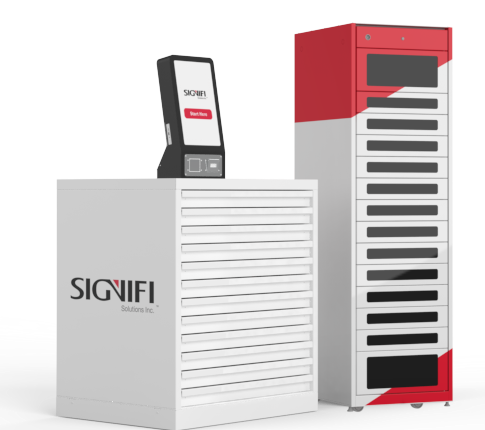Resident Expectations: Top 6 Complaints Condo Corporations Face
In the competitive real estate market, meeting resident expectations is crucial for condominium corporations. Residents’ satisfaction plays a vital role in maintaining their pride, which can foster better care for the property and ultimately increase desirability and market values.
Throughout Canada, condominium living is becoming more popular than single-family homes and rentals housing. With greater demand for condo units, it is imperative for condominium corporations to address the expectations of their residents. However, these expectations often go unmet, leading to frustration and dissatisfaction.
Today we explore the six most common complaints voiced by condo residents. We shed light on why these expectations often remain unfulfilled and provide insights into how condominium corporations can strive to meet them.
By addressing these concerns, corporations will improve resident satisfaction, preserve property value, and ensure the long-term success of condo communities.

#1 – Cleanliness of the building: Insufficient attention to cleanliness contributes to unmet expectations of a clean and healthy building. To meet these expectations, condo corporations should prioritize hiring professional cleaners, provide adequate waste management facilities, and encourage residents to keep their units and balconies tidy.
#2 – Maintenance of the building and its amenities: When these resident expectations are not met, it can negatively impact the condo corporation by leading to increased maintenance issues, reduced resident satisfaction, and potential damage to the property. Corporations can meet these expectations by establishing a maintenance plan, conducting regular inspections, and promptly addressing maintenance requests or complaints from residents.
#3 – Lack of parcel security or accessibility: In unstaffed buildings, parcels can stack up like Lego blocks creating a fire hazard, exposing parcels to theft, and posing a trip and fall situation. And for buildings where staff manage inbound deliveries, retrieval is limited to certain hours while the cost to pay staff for parcel management costs thousands of dollars per month.
Improving parcel management can be achieved by installing a smart parcel locker or converting an unused room into a secure parcel room, ensuring 24/7 accessibility, organization, and security for residents’ parcels.
#4 – Timely communication from the property management company: Failing to meet communication expectations can negatively impact the condo corporation by causing frustration, misinformation, and a breakdown in resident trust. Corporations can meet these expectations by establishing clear communication channels, utilizing multiple communication methods, and being responsive and courteous in their interactions with residents.
#5 – Transparency in financial management: Mismanaged financials is perhaps the quickest way for a condo corporation to create a large rift amongst its residents. Trust erodes as concerns about financial mismanagement get raised leading toward hindered decision-making. To meet these resident expectations, corporations can develop a comprehensive budget, establish clear financial policies and procedures, and provide regular financial reports and statements, ensuring transparency and accountability.
 #6 – Availability of parking spaces: This may seem like an unavoidable problem that leads to frustration, limited parking availability, and potential conflicts among residents. However, corporations can meet these expectations by ensuring enough well-maintained parking spaces, enforcing parking rules and regulations, and providing alternative parking options such as bike racks or car-sharing services.
#6 – Availability of parking spaces: This may seem like an unavoidable problem that leads to frustration, limited parking availability, and potential conflicts among residents. However, corporations can meet these expectations by ensuring enough well-maintained parking spaces, enforcing parking rules and regulations, and providing alternative parking options such as bike racks or car-sharing services.
Meeting Resident Expectations
Your residents’ satisfaction is the key to maintaining pride and harmony. The more resident expectations condominium corporations can meet, the more desirable a property becomes and ultimately more valuable.
However, unmet expectations often lead to frustration and dissatisfaction among condo residents. If left unchecked, a downward spiral can spawn, making it increasingly difficult for board members and property managers to recover from them.
To ensure that residents’ voices are heard and their concerns addressed, condominium associations must implement effective strategies for regularly soliciting resident input. Creating an inclusive and collaborative environment not only enhances resident satisfaction but also allows the association to identify and prioritize critical issues efficiently:
-
Resident Surveys: Conducting periodic surveys allows the association to gather feedback on various aspects of condo living, including amenities, maintenance, and communication. Surveys can be distributed electronically or through physical forms, ensuring ease of participation for all residents.
- Open Forums and Town Hall Meetings: Hosting open forums or town hall meetings enables face-to-face interactions between residents and association members. These gatherings encourage open dialogue, providing a platform for residents to express their concerns and suggestions.
- Digital Platforms and Social Media: Utilizing digital platforms and social media groups facilitates ongoing communication with residents. Associations can create dedicated online forums where residents can share ideas, voice concerns, and collaborate on community matters.
- Committees and Resident Representatives: Forming committees or appointing resident representatives allows residents to actively participate in decision-making processes. Committees can focus on specific issues like landscaping, security, or social events, fostering resident involvement and prioritizing concerns raised by the community.
-
Regular Communication Updates: Keeping residents informed about ongoing initiatives and updates is crucial. Newsletters, email updates, or community websites can be utilized to disseminate information, encouraging residents to stay engaged and share their thoughts.
Collecting data and information is just the first step. Taking meaningful action is what sets strong condominium corporations apart from those who don’t walk-the-walk. Prioritizing resident-raised issues requires a structured approach to ensure fair and well-informed decision-making:
- Issue Categorization: Categorize issues based on their urgency and impact on the community. Focus on critical matters that affect safety, security, or essential services first.
- Resident Consensus: If multiple issues arise, consider seeking resident input through surveys or discussions to gauge which concerns resonate most with the majority.
- Assessing Resources: Evaluate the resources, time, and financial implications associated with addressing each issue. Some matters may require immediate attention, while others can be part of long-term planning.
- Transparency and Feedback: Communicate the prioritization process to residents and explain the reasons behind decisions. Welcome feedback to maintain transparency and trust within the community.
- Action Plan Implementation: Develop a clear action plan for addressing each prioritized issue, including timelines and milestones. Regularly update residents on progress and outcomes.
By actively seeking resident input and prioritizing their concerns, condominium corporations can foster a collaborative and engaged community, leading to higher resident satisfaction and a thriving living environment.
Of course, the best time to begin soliciting feedback and implementing your corporation's action plan is today. Never is there a better time than the present!
Signifi is working with property managers to implement the Signifi's Smart Residential Lockers in their apartments. Contact us to find out more about how it could help you.


.png)

